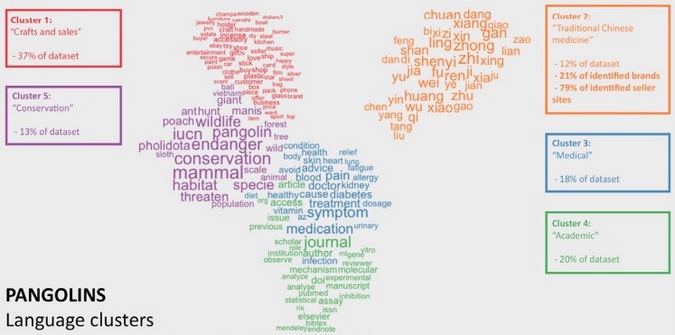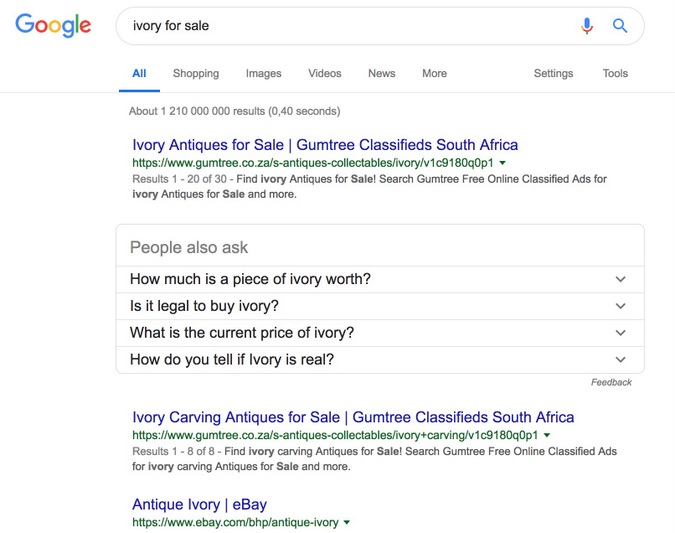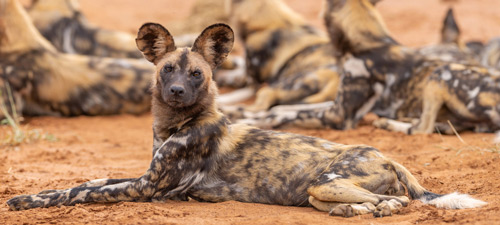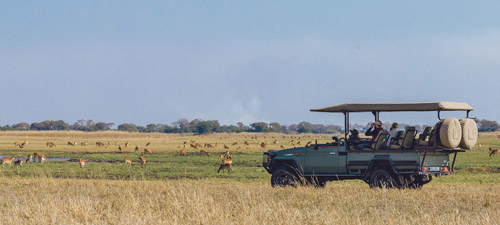
Sourced from third-party site: Oxpeckers – Center for Investigative Environmental Journalism, written by Roxanne Joseph
The internet is used to trade endangered animals, plants and their parts, and more broadly hosts communities and subcultures where this trade is normalised, routine and unchallenged.
There are numerous law enforcement agencies and organisations working to ensure that wildlife trafficking is identified, prevented and prosecuted at every opportunity, but with almost complete anonymity, easy access and seemingly endless variety, the internet makes this even more difficult to do.
Detecting Online Environmental Crime Markets, a report released in January by the Global Initiative Against Transnational Organized Crime (GI), introduced an innovative tool called the Dynamic Data Discovery Engine (DDDE). It is designed to build as comprehensive a picture as possible of how, where and when vulnerable plants and animals are transacted over the internet.
If you were to type “claws”, “skins” or “horns” into a search engine, you would be met with too many results to sort through. The DDDE attempts to solve this by giving you results that contain only illegal transactions, or discussions related to restricted commodities.

To see what the DDDE was capable of, researchers Carl Miller, Jack Pay and Josh Smith trialled the tool across three case studies: orchids, pangolins and ivory.
The intention was to identify as many URLs (the address or link to a page available online) as possible, and as precisely as possible, that were engaged in either the transaction of the commodity, or conversations about them…
To read more about the three case studies, continue to the article on Oxpecker’s website here
To comment on this story: Login (or sign up) to our app here - it's a troll-free safe place 🙂.![]()








